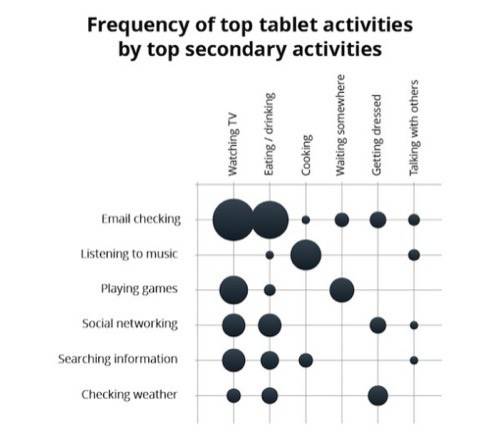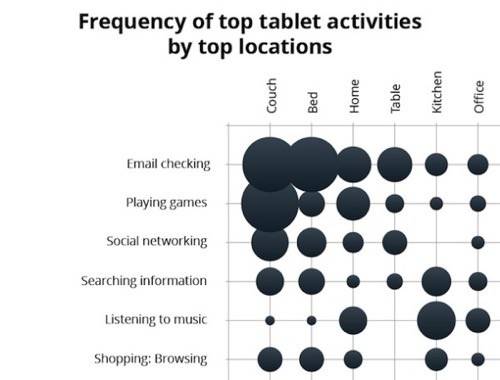As part of its ongoing sponsored research into mobile computing habits, Google released some interesting findings about the way consumers use their different devices. Google refers to the tablet as a “third digital screen in consumer’s lives that fill[s] the gap between desktops and smartphones.” Its study found that people use tablets for personal rather than work-related activities 91% of the time.

Google found that users quickly migrate entertainment activities over to their tablets when they get them. They use tablets for longer sessions on weekends than on weekdays. And 42% of the time, people are using tablets to multitask, especially in front of the TV, and even while eating or cooking.

Tablets In The Home
The study also found that tablets are primarily stay-at-home devices. Users do bring them along on longer trips, but tablets tend not to leave the house on a day-to-day basis. Of the places people commonly use tablets, the office is the least popular.

Why Did Google Study This?
Google wants to figure out how consumers use tablets in order to show them ads, of course. That’s Google’s business. Nothing wrong with that. But the shopping and advertising part of Google’s published results is a little sketchy.
There’s no question that consumers have high mobile expectations, as Google recently found in another mobile ad study. Google has brought the +1 button and mobile incentives for AdWords to encourage advertisers to go mobile. It’s even on a big PR blitz to promote better mobile websites. But when it comes to explaining how much tablet users looooove advertisements, Google’s language gets vague.
“Consumers are engaging with useful, relevant and rich ads that take advantage of the touchscreen interface on tablets,” the report says. “Some consumers expect more interactivity from ads on tablets than they do from ads on their desktop computer.” Are they really? Who knows? Advertisers are aggressively pushing the technology of mobile advertising, seeking a profitable solution for the new “post-PC world.”
But what do consumers want? According to another recent study we liked, tablet users just want to control their experience.
What do you think the strengths and weaknesses of tablets are?










